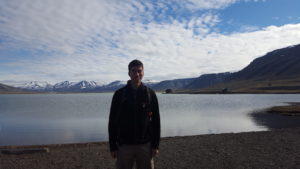a. What is your background? Where are you from? What do you study? What are you most interested in, scientifically?
I am a PhD student in the Biogeosciences Lab led by Dr. Marc Macias-Fauria in the School of Geography and Environment at the University of Oxford. My research investigates the influence of reindeer herbivory on the carbon cycle on the Yamal Peninsula, where the Indigenous Nenets people manage the world’s largest reindeer herds. Originally, I am from near Philadelphia in the United States, and I completed my undergraduate degree in Civil and Environmental Engineering at Princeton University. Broadly, I am interested in how human activity affects environmental processes and how these impacts feedback on human responses. I seek to understand ecosystem changes through fieldwork, remote sensing analysis, and ecological modeling.
b. What are your goals for the upcoming course in Peru? How will you know if you’ve met these goals?
I have two goals for the course. First, since I am again participating on the remote sensing team as I did for PFTC4 in Svalbard, I hope to improve on our protocols and research execution. This component of the course was brand new in Svalbard, so much of our methodology was designed on the fly. Having learned from that experience, I am excited to apply the lessons to this campaign from the beginning. Additionally, I will aim to learn the techniques employed by the other teams. In my PhD project, I will use trait-based approaches to understand controls on vegetation productivity and nutrient cycling. The other teams will be performing many of the measurements I hope to make in the field, especially the carbon flux team, so I hope to learn from them to aid in my own research design. I will know if I have met my goals by the end of the course if I feel that my team has collected reliable data that will be useful for scaling up trait measurements and if I have a strong understanding of the other teams’ methods.
c. What are you most excited about, with respect to the upcoming course and trip?
I am most excited about starting a new project from scratch with a completely new team of people. Especially with fieldwork involved, I am sure there will be surprises and ups and downs, but I’m looking forward to persevering together to make the most out of the opportunities afforded by the course. Based on our conference calls so far, everyone on the team seems very thoughtful, and we have a range of backgrounds and experiences. I think it will make for a productive trip, both in terms of creating research outputs and learning by doing!
d. What do you anticipate people will think about climate change in Peru? Do you think most people will accept that the planet is warming, and that this is largely being caused by human activities? Or will this topic be controversial?
I think most people in Peru will be aware that climate change is occurring and will agree with the scientific consensus that it is predominantly due to human activities. I would guess that they have noticed changes in temperature, the seasons, or extreme events, such as droughts.
e. What do you know about public perceptions of climate change in your home country? What, if anything, have you experienced related to public perceptions of climate change?
In the United States, climate change is still controversial, especially with the current administration rejecting the scientific consensus. My impression is that almost everyone now recognizes that it is occurring, but many still believe that it is not caused by humans. I used to canvas door-to-door for environmental organizations, and more frequently than I initially expected, I would meet people that denied the science of climate change. I think many Americans remain in denial because they refuse to accept that we will need to make major economic changes to transition away from fossil fuels.
